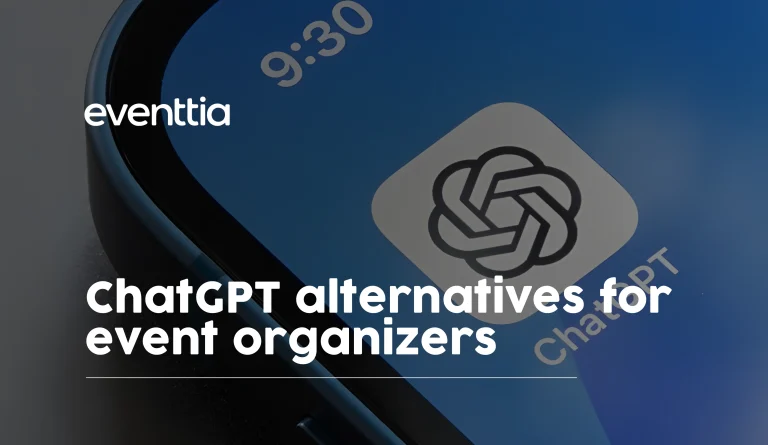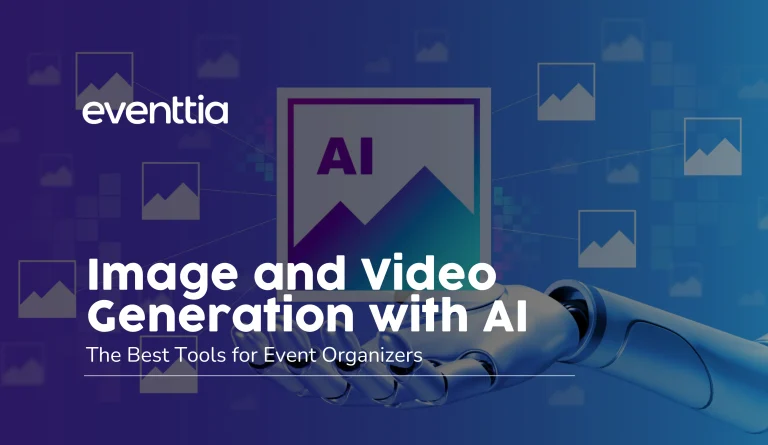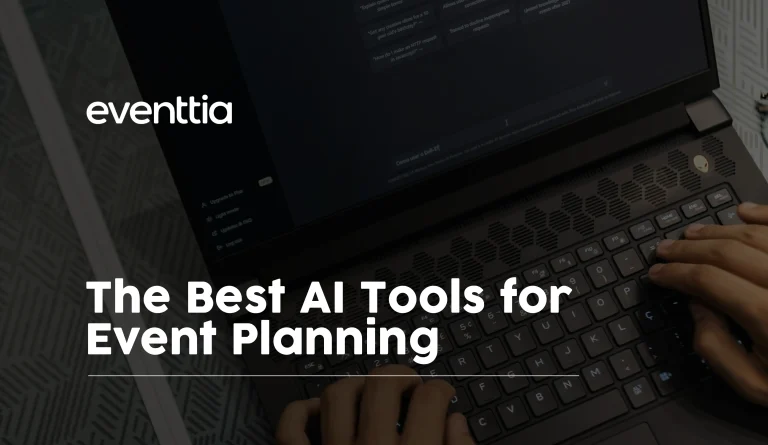Planning events takes plenty of time and effort, and you can’t always evaluate the ROI correctly. So how can you be sure that someone decided to buy your product because of an experience she or he had during your event? If you want to excel and quantify your results, you need to utilize event marketing. In this article, we’ll discuss the ways in which you can align the events you run with your company’s business goals.
The truth of the matter is your digital marketing strategy isn’t enough to strengthen the position of your company or increase your lead conversion rate.
More actions are needed.
“Do I have to run Facebook ads?” I hear you asking, then adding, “Or maybe we should launch a podcast with industry experts?”
These are both good ideas, but I’m talking about something else: running events.
You see, anyone can engage with people online and create a few event marketing strategies to increase their conversion rates and close more deals. However, there’s nothing else more powerful and memorable than an in-person brand experience.
The business value of event marketing
According to Deanna Ting, “Today’s chief marketing officers, brand managers, and event organizers are focusing more on in-person brand experiences to engage more with customers and clients to build loyalty, according to a new global study.”
Freeman, a global meeting and events company, and SSI, a data solutions provider for market researchers, conducted a survey of 1,000 consumer-oriented and B2B marketing professionals in North America, Asia, and Western Europe.
According to the survey results, 59 percent of chief marketing officers “recognize brand experience for its ability to create ongoing relationships with key audiences.”
Another recent report, published by Harvard Business Review, shows that 52% of survey respondents say event marketing drives more business value than other marketing channels, while only 8% say it drives less. Also, respondents who have seen revenue grow 30% or more over the past two years have been increasing their event activity.
Sounds tempting, doesn’t it?
However, it’s important to understand that all those brands that are achieving success are well versed in aligning their event marketing strategy with their business goals.
If they didn’t do that, their attempts to design in-person experiences for their audience(s) would be futile.
It works the same as your digital marketing strategy. First, you need to decide what exactly your business goals are, what you want to achieve in the next quarter or year, and how you’ll quantify your results.
Once you’ve figured all that out, then you can start crafting an action plan that will help you figure out which direction to choose.
So how do you align your event marketing strategy with your business goals?
Here’s a list of recommendations you’ll want to take note of:
Focus on one specific goal only
Whether you’re the head of marketing for a small company or a global organization, you’ll often juggle multiple business goals (increasing the conversion rate, decreasing the churn, closing X amount more deals, growing the MRR rate, etc.).
When planning an event, however, you’ll want to focus on just one goal. This way, you’ll avoid diluting the message you’re trying to communicate to your attendees. Also, you’ll have to focus to designing and deploying multiple actions to achieve that one goal.
For example, if you want to plan an event to strengthen the loyalty of your existing customers, then don’t also try to attract more leads at your event. Run an event for your current clients only.
Or, if you want to run an event to transform your existing leads into paying customers, focus on that specific mission and design the entire event around it, without chasing other objectives at the same time. When it comes to your business goals, you’ll want to run laser-focused events if you want to get the results you were hoping for.
Segment your audience according to the funnel stages
Dividing your audience into segments is very important. Although you can run mixed events and invite a large audience along with your recurrent clients, to achieve your specific goals, you’ll want to pinpoint your attendee types and then run your events accordingly.
Let’s take, for example, a basic funnel. You’ll have the following categories:
- People who have a problem, yet they can’t articulate that problem very well (ToFu).
- Leads who have acknowledged their problem and are actively searching for a solution (MoFu).
- People who are ready to pay for a solution (BoFu).
Considering this segmentation, you can run different types of events depending on the funnel stage you’re focusing on, which will give your intended message a much greater impact.
Build an attendee touchpoint map
To align your event with your business goals, you’ll want to design a touchpoint map. Not sure what that is?
A touchpoint map is the way in which your client or attendee will interact with your business.
For example, how many times, during the event, will your guests have a brand experience? Will it be during the opening panel, while listening to the CEO of your company? Or maybe it will be the surprise product launch you’ve prepared for them?
Determine moments during the event in which your attendees will have a personalized brand experience, and build the entire event around those moments to reinforce their impact.
Mix your events strategy with your overall marketing plan
To achieve your business goals through your event(s), you’ll also want to throw your marketing strategy into the mix. If done correctly, you’ll be able to reap the fruits of your event long after it’s finished.
How?
Think email or content marketing, for example. Let’s say that during your event, you managed to attract more leads. Now that you have those leads’ email addresses, you can reconnect with them by sending them meaningful messages with event videos, surveys, or other useful content.
Wrap-up
Although it requires more work, time, and effort than just setting up a Facebook ad, event marketing is definitely worthy of your attention. Don’t invest all of your resources in digital marketing or growth hacking and leave it at that.
There’s nothing more powerful than the in-person interactions your leads, prospects, or clients will have with your brand and your team. Design live experiences for your audience and get them to understand your brand’s real value. Align your events strategy with your business goals and achieve your desired results.
Discover how Eventtia helps world-leading brands digitize and scale their events
Learn moreShare



